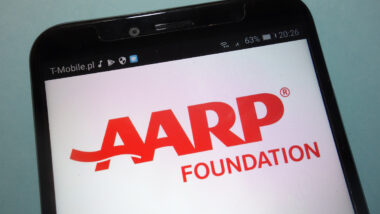Top Class Actions’s website and social media posts use affiliate links. If you make a purchase using such links, we may receive a commission, but it will not result in any additional charges to you. Please review our Affiliate Link Disclosure for more information.

Update:
- A former Kellogg accountant hit back at the company’s attempt to dismiss his class action claiming the company mismanaged its 401(k) plan, forcing the participants to pay excessive record-keeping fees that cut into their retirement funds.
- On Jan. 23, former Kellogg accountant Bradley H. Fleming filed a response in opposition to Kellogg Co.’s motion to dismiss his class action lawsuit in a Michigan federal court.
- In it, he says Kellogg was wrong to try to force arbitration on the case because breach of fiduciary claims under the Employee Retirement Income Security Act (ERISA) brought in a representative capacity are not subject to plan arbitration provisions.
- He also states he and the class he seeks to represent are eligible for recovery of the millions lost from harms caused by the company’s alleged violations of ERISA.
- According to the lawsuit, the defendants didn’t properly monitor the account service fees, resulting in unreasonable account service fees for members.
Kellogg’s retirement plan class action lawsuit overview:
- Who: A former Kellogg’s accountant filed a class action lawsuit against the company.
- Why: The plaintiff alleges the company mismanaged its 401(k) plan, causing participants in the plan to pay excessive fees that decreased retirement balances.
- Where: The case was filed in Michigan federal court.
(07/04/2022)
Kellogg’s mismanaged its 401(k) plan, forcing the plan’s participants to pay excessive recordkeeping fees that cut into their retirement funds, a new class action lawsuit alleges.
Former Kellogg’s accountant Bradley H. Fleming filed the class action lawsuit against Kellogg Co., its board of directors, its Employee Retirement Income Security Act (ERISA) finance committee and its ERISA administrative committee June 28 in a Michigan federal court, alleging violations of ERISA.
According to the lawsuit, the defendants didn’t properly monitor the account service fees, resulting in unreasonable account service fees for members.
“These breaches of fiduciary duty caused plaintiff and class members millions of dollars of harm in the form of lower retirement account balances than they otherwise should have had in the absence of these unreasonable plan fees and expenses,” the Kellogg’s class action states.
Kellogg’s class action claims company didn’t check whether fees were reasonable
Fleming was in charge of the company’s North America fixed assets and supervised four fixed-asset accountants from July 2006 to August 2019. He was also a participant in the plan through 2020, he says.
While the retirement plan received recordkeeping services from Transamerica Retirement Solutions from 2016 to 2020 and Fidelity Investments from 2021 on, Kellogg’s failed to seek independent evaluations to make sure its recordkeeping fees were reasonable, the lawsuit states.
Fleming alleges the annual recordkeeping fee was $137 per participant when most other plans had fees of $35 per participant on average.
“These objectively unreasonable recordkeeping and managed account fees cannot be contextually justified and do not fall within ‘the range of reasonable judgments a fiduciary may make based on her experience and expertise,’” Fleming says in the Kellogg’s class action.
He looks to represent a class of all Kellogg’s plan participants and beneficiaries since June 28, 2016. Fleming says the class could include more than 12,000 members.
Fleming seeks to recover the losses the plan participants suffered, plus fees, costs and a jury trial.
Last month, Kellogg’s announced plans to split its business into three independent companies to separate its cereal and snacking businesses. It plans to use the breakup as a way to simplify the structure of its snacking business and increase the company’s focus on it.
What do you think of the allegations in this case? Let us know in the comments!
Fleming is represented by Paul M. Secunda of Walcheske & Luzi LLC and Troy W. Haney of Haney Law Firm PC.
The Kellogg’s retirement plan class action lawsuit is Fleming v. Kellogg Co., et al., Case No. 1:22-cv-00593, in the U.S. District Court for the Western District of Michigan.
Don’t Miss Out!
Check out our list of Class Action Lawsuits and Class Action Settlements you may qualify to join!
Read About More Class Action Lawsuits & Class Action Settlements:















6 thoughts onKellogg class action plaintiffs say company can’t force arbitration
Add Me
Add me please.
Add me please
Add me please
add me please
Please add me